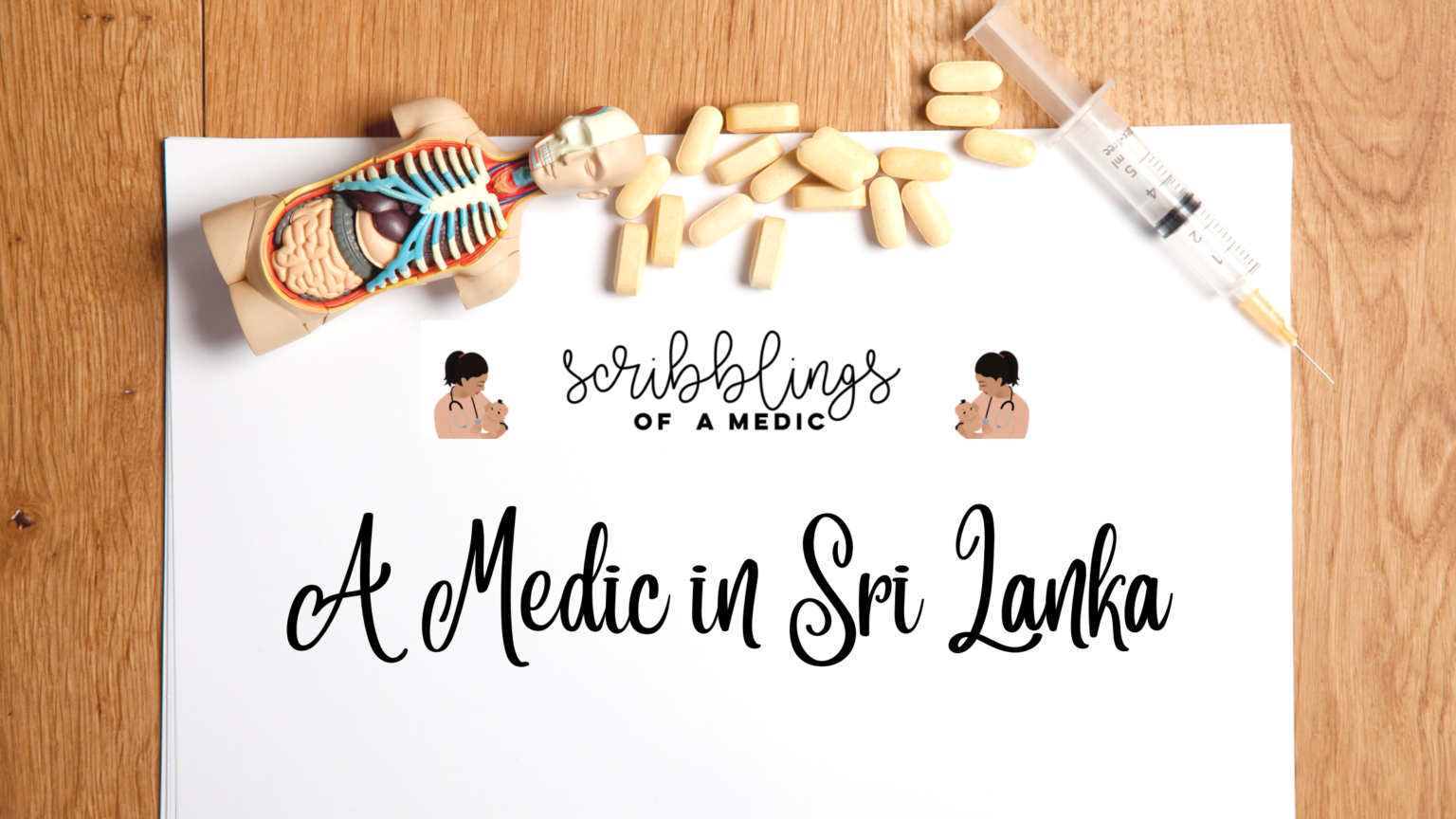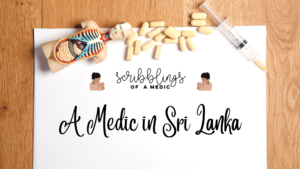Death is an eery topic to almost anyone. As a doctor or a healthcare professional, you are expected by the general public to have an unusual familiarity with death because it is considered to be “part and parcel” of the job. It’s this expectation that I would always have a problem within the beginning, but I began to realise that you really have to become immune to it or else it will affect you mentally.

Nobody is prepared to witness or be around death. As medical students, I don’t think any medical school properly equips their students with the armour you need to deal with the death of a patient. Of course, breaking bad news is an integral part of training in patient communication, but death not so much. During my numerous ward/ETU shifts as a medical student, there were many times when I would hear the wailing of family members who had just lost a loved one. I would literally scurry away in fear that I would break down in tears in front of the family members – feeling their pain.
As I finally graduated and started working as a doctor, this did not become easy. As an intern, I would be actively involved in resuscitating patients, some of whom had spent weeks in the hospital and naturally I would have gotten attached to. Initially, I would be heartbroken about losing a patient. I felt as if this was MY patient. MY responsibility. I worked 24/7 around the clock, clerked the patient every day and spent so much time ensuring the best care possible. It is, therefore, no surprise that when a patient dies you feel defeated and unsure about everything. Professionally, however, you cannot break down so you have to hold it together. It helps if you learn to detach yourself emotionally from patients in order to cope. You can build on the doctor-patient relationship, but still understand that at the end of the day, this person is still a patient.
Working in the neonatal intensive care only meant the death of patients became harder. The worst possible situation is the breakdown of a mother who just lost her newborn baby. It’s the worst feeling in the world to tell a parent that their child has passed away. More often than not in addition to the sadness, there is a lot of anger. The family does not understand the hard work and stress that doctors go through to try and save a patient, let alone newborn. Many take out their anger on the doctor and healthcare staff available which is equally frustrating when you have killed yourself trying to save another, but you really need to keep your calm in such emotional situations.
My experience
When I first started working in Sri Lanka, the whole culture shock was bizarre to me and I definitely was very confused and uncomfortable in the 1st month. The 1st death I witnessed as a surgical intern was of a police officer who was involved in a road traffic accident at night and was diagnosed with a head injury (EDH). Whilst boarding the ambulance after he was intubated and attached to the ventilator, the patient went into cardiac arrest. I spent more than 45 minutes resuscitating him in the ambulance with the nurse and back up healthcare workers who came running from the ward.
In Sri Lanka, crowds gather at the drop of a hat, and so they did around the ambulance (even if they were unknown to the patient). So I had to resuscitate this policeman in a dark ambulance with minimal lighting with an audience watching. I was only grateful to the crowds when they turned on their mobile phone lights in order to help me work. It’s always risky because you don’t know if anyone is filming the incident, but with minimal resources, you just have to make do with what is available.
Despite non-stop resuscitation for 45 minutes (felt like 2 hours), we lost the patient and finally, my senior and I had to call “time of death”. Doing all this and losing a patient with a 100 eyes on you is terrifying. As my co-HO accompanied me back to the ward, I felt defeated and completely broke down in tears in the corridor to the horror of the security guard who had become my friend. I had never felt more scared and worthless, knowing that despite my best efforts I could not save everyone.
To this day that incident still traumatises me, but it definitely was a good reality wake up call. Over time I have developed a thicker skin and I ensure that I don’t get overly attached to my patients. There aren’t many forms of support available in Sri Lanka to deal with grief, but I would advice any junior doctor/medical student to talk to someone. Someone you trust – you need to vent and get it all out there.
Patient death is still a challenge to me, especially when I work with children and babies, but it is something that I know I will get better at dealing with. I would love to hear more stories about your experience dealing with patient death – so do leave a comment below or send me a message through the contact page!





